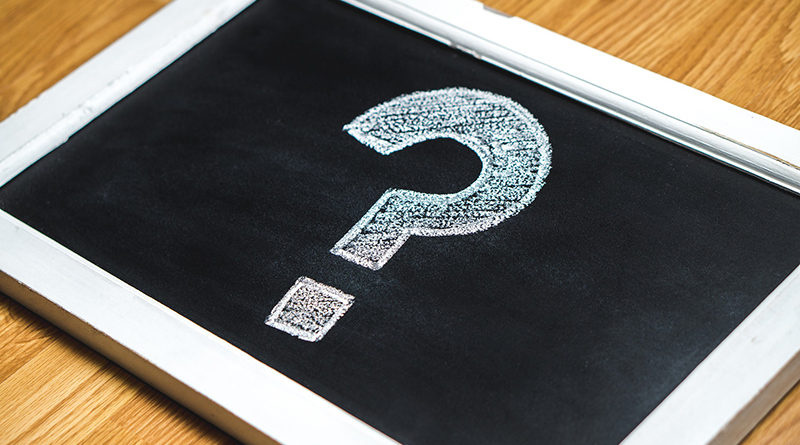Question tags can be tricky, can’t they?
Möchte man im Deutschen von seinem Gesprächspartner eine Bestätigung, hängt man einfach ein Wort ans Satzende dran, oder? Die englische Entsprechung sind die sogenannten question tags – die manchmal richtig kompliziert sind …
By Siobhan Bruns
A question tag sentence has a statement The sky is blue + a tag (a verb and a pronoun) isn’t it + a question mark ?
The sky is blue, isn’t it?
Here are the basics to keep in mind when using question tags:
The pronoun in the question tag must agree with the subject in the statement
Correct: Susan likes English, doesn’t she?
Incorrect: Susan likes English, doesn’t they?
When the statement is positive, the tag is negative
When the statement is negative, the tag is positive
Correct: You like chocolate, don’t you?
Incorrect: You like chocolate, do you?
Correct: You don’t like strawberries, do you?
Incorrect: You don’t like strawberries, don’t you?
The verbs in the statement and tag must agree:
they must have the same tense
Correct: He’s a friend, isn’t he?
Incorrect: He’s a friend, wasn’t he?
they must be the same type
auxiliary verbs
Correct: They’ve seen that movie before, haven’t they?
Incorrect: They’ve seen that movie before, weren’t they?
no auxiliary verb
(If the statement doesn’t have an auxiliary verb then the appropriate form of do is used)
Correct: Mark likes jogging, doesn’t he?
Incorrect: Mark likes jogging, likes not he?
modal verbs
Correct: You couldn’t see it, could you?
Incorrect: You couldn’t see it, can you?
and have the same number
Correct: We haven’t listened properly, have we?
Incorrect: We haven’t listened properly, has we?
But! I am gets the question tag aren’t I
Correct: I’m the oldest, aren’t I?
Why do we use question tags? Question tags are often used for re-confirming information we believe to be true. Sometimes, it isn’t even a question at all. If the tone of our voice rises, it’s a real question. If it falls, we’re already certain of the answer. Read these two questions aloud:
with your voice rising at the end You already know this information, don’t you?
with your voice falling at the end You already know this information, don’t you?
In the first case, you’re pretty certain the person you’re asking knows the information, but you want to check if that’s really true.
In the second case, you’re certain the person knows the information.
Take this quiz and see what you’ve learned.
1. John is American, a) isn’t he? b) isn’t she? c) aren’t they?
2. This piece doesn’t fit, a) doesn’t it? b) does it? c) can’t it?
3. You don’t know him, a) do you? b) won’t you? c) don’t you?
4. We’re leaving now, a) were we? b) aren’t we? c) weren’t we?
5. They’ve left the key, a) will they? b) can’t they? c) haven’t they?
6. She shouldn’t be here, a) is she? b) isn’t she? c) should she?
7. I can do this, a) will I? b) can’t I? c) won’t I?
8. We wouldn’t go there, a) would we? b) should we? c) could we?
9. I’m doing well, a) is I? b) aren’t I? c) do I?
10. Questions tags are easy, a) are they? b) isn’t they? c) aren’t they?
Answer key
1.a 2.b 3.a 4.b 5.c 6.c 7.b 8.a 9.b 10.c
| Photo: Pixabay






